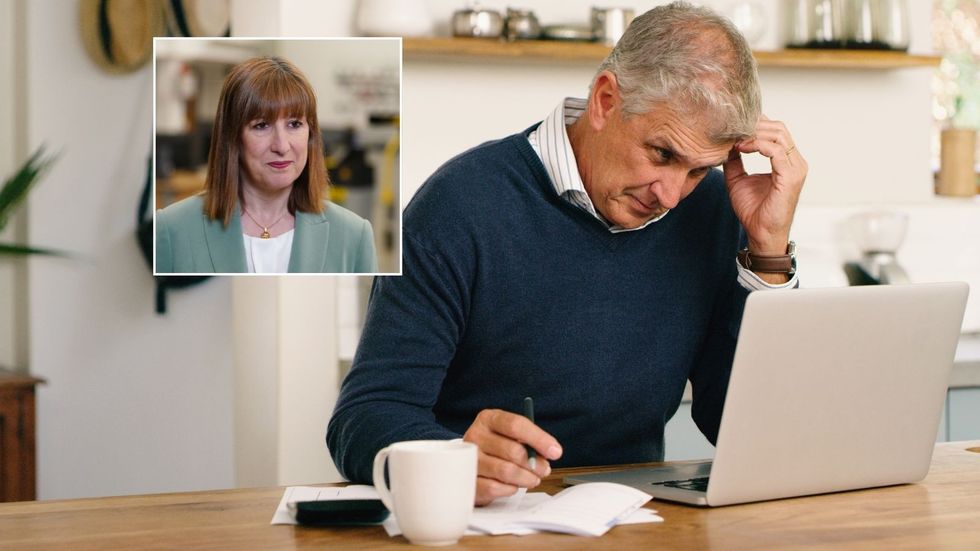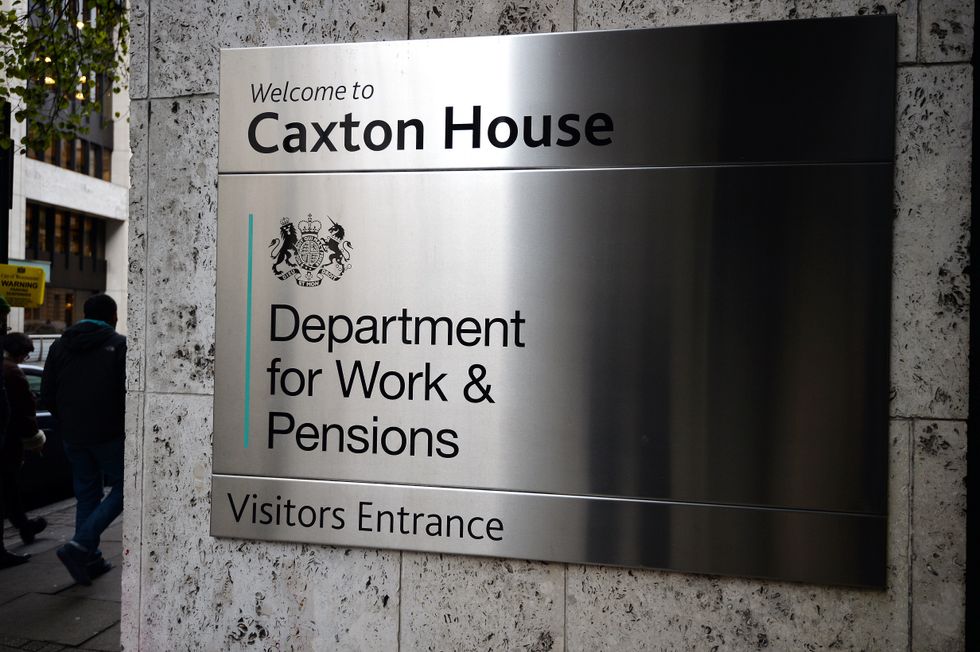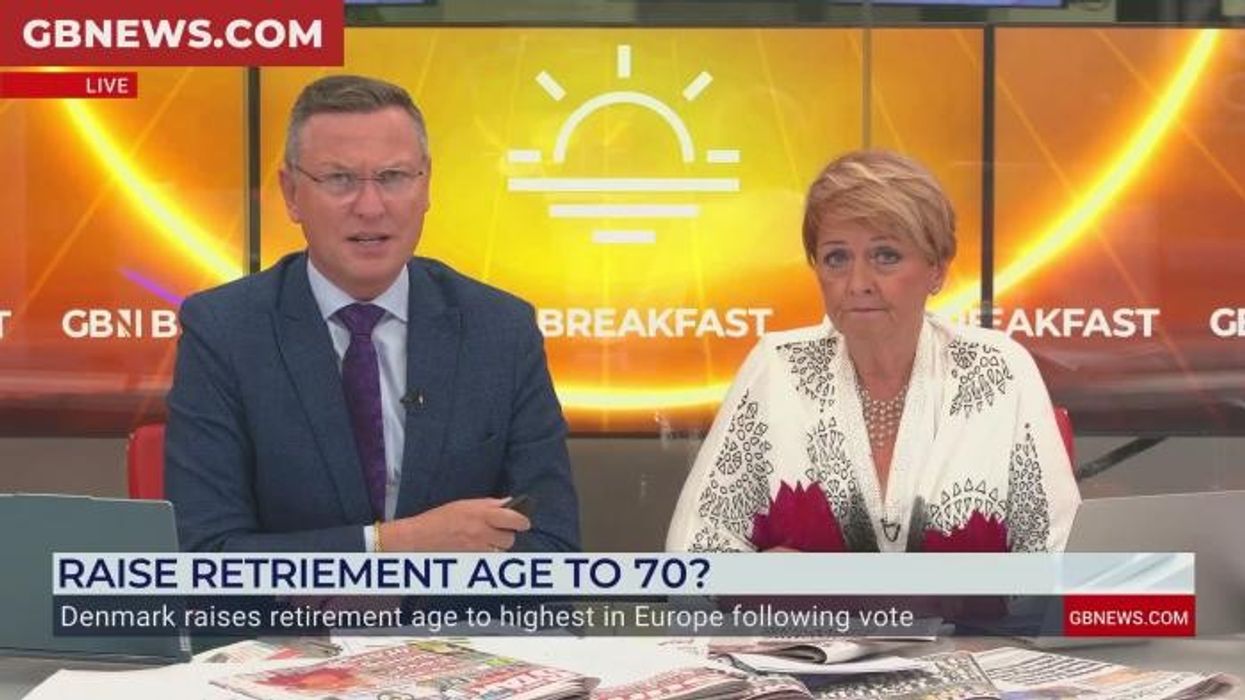State pension under pressure as 'mounting triple lock bill' will force tax hikes or pension cuts

All Britons are entitled to the state pension once they reach of age 66
Don't Miss
Most Read
Latest
The state pension triple lock is under fresh pressure as rising inflation and weak growth leave the Government facing stark fiscal choices.
With the Autumn Budget approaching, one leading economist says the policy is no longer affordable and warns that change may be unavoidable.
Professor Joe Nellis, economic adviser at MHA, told GB News: "It isn't realistic to maintain the triple-lock without raising taxes or cutting elsewhere, but any changes to the triple lock will be a political landmine for this Government that they are unlikely to touch. Tax rises and spending cutting are the most likely options for balancing the books."
Now, analysts at the Intergenerational Foundation are calling on Labour to go further by introducing "modest means-testing" to address growing inequality between age groups.
In its latest report, the think tank recommends: “Reform the state pension by removing the triple lock and introducing modest means-testing.”
The call follows research showing that public spending per pensioner has risen by 55 per cent since 2004–05, while spending per child has increased by just 20 per cent over the same period.
Currently, the state pension is available to all individuals over the age of 66 regardless of income or wealth. Under the triple lock system, pension payments rise each year by the highest of inflation, average earnings or 2.5 per cent.
But inflation remains well above the Bank of England's two per cent target. Year-on-year CPI rose to 3.6 per cent in June, prompting concerns that the next uprating will add even more to the state pension bill.
The cost of the state pension triple lock is set to be three times higher than originally estimated by the end of the decade, putting UK public finances on an “unsustainable” path, according to the Government’s economic forecaster.
The Office for Budget Responsibility (OBR) said that the annual cost of the triple lock policy is estimated to reach £15.5billion by 2030. The state pension is the second-largest item in the Government’s budget after health.
"Sticky inflation threatens to keep this cost rising," Nellis warned.

The state pension is the second-largest item in the Government’s budget after health
|GETTY
With economic growth expected to come in at just one per cent for the year (OBR), Chancellor Rachel Reeves faces tough choices ahead of the Autumn Budget.
Nellis continued: "With economic growth still sluggish, the Government has little wriggle room for manoeuvre. We head towards a Budget where the Chancellor will need to reconcile tax revenues and public expenditure. If she cannot do it through spending cuts (such as to pensions) then we are very likely to see tax rises."
He added: "She could always break her self-imposed fiscal rules, but her commitment to these has been steadfast."

Nellis explained that if there were to be any changes, one option could be modifying the increases to just the inflation figure
| GETTYNellis explained that if there were to be any changes, one option could be modifying the increases to just the inflation figure.
He said: "The triple lock could be modified by limiting increases to inflation only – the Government could argue that this will maintain living standards.
"An inflation-only uprating system could be justified with potentially minimal political fall-out. This is probably the only realistic option if they were to make any changes."
However, not all reforms are seen as politically viable. "A means-tested or graduated pension scheme is probably politically impossible – more so for a Labour Government," he added.

Despite the political fallout, the debate over the future of the triple lock is unlikely to fade
|GETTY
Despite the political fallout, the debate over the future of the triple lock is unlikely to fade.
Nellis warned: "Realistically, the UK economy cannot afford annual pension rises at this level – and with an ageing population the financial burden will only get worse."
The OBR's latest Fiscal Risks and Sustainability report revealed that the cost of the state pension has grown from around two per cent of the economy 80 years ago to five per cent, or £138 billion, today. This is forecast to reach 7.7 per cent by the early 2070s if no reforms are made.
OBR chair Richard Hughes issued a stark warning and said: "When you project trends in both pension spending and health and other age-related spending forward, the UK public finances are in an unsustainable position in the long-run."
He added: "The UK cannot afford the array of promises that are displayed to the public if you leave those unchanged based on a reasonable assumption about growth rates in the economy and in tax revenues."
The OBR also flagged risks from the decline of defined benefit pensions, which could leave the UK more reliant on foreign investors. Hughes warned they are “more fickle and flighty than their domestic counterparts.”
More From GB News











